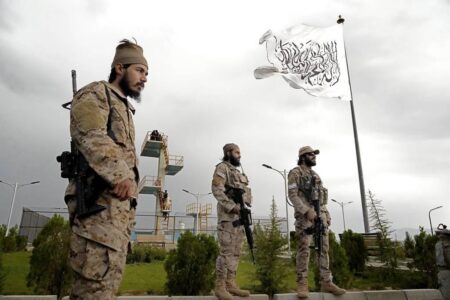
Afghan-based terrorist groups still a year away from ability to strike the US
Terrorist groups within Afghanistan are still about a year away from being able to attack targets in western countries, but remain a significant concern for U.S. military planners, intelligence officials told lawmakers on Tuesday.
Last fall, Defense Department officials said that groups like al-Qaida and Islamic State Khorasan Province (known as ISIS-K) could strike at the United States within six months if left unchecked by military forces, a timeline that alarmed numerous lawmakers.
But this week, Lt. Gen. Scott Berrier, director of the Defense Intelligence Agency, said in testimony before the Senate Armed Services Committee that his agency believes both groups are still a year away from that kind of disruptive capability.
“I’m more concerned about ISIS-K in Afghanistan, and the fact that they have had some successful and catastrophic attacks within Afghanistan,” Berrier said. “That does not portend well for the future.
“Al Qaida has had some problems with reconstituting leadership, and to a degree the Taliban have held to their word about not allowing al Qaida [to] rejuvenate,” he added. “But it’s something that we’re watching very, very carefully.”
Concerns about the terrorist groups gaining strength became a focus last fall after all U.S. military forces withdrew from Afghanistan at the end of August, ending the nearly 20-year American-led war there. The move ceded control of the country to the Taliban.
In his written statement to the committee, Berrier said ISIS-K in particular has “gained considerable personnel and resources since the Taliban takeover, and been emboldened since its Aug. 26 attack on Hamid Karzai International Airport in Kabul,” which killed 13 U.S. servicemembers.
He also warned that “the group’s continued growth in Africa will spread instability and increase the threat to U.S. interests on the continent.”
On the other hand, he said al-Qaida has not thrived under Taliban rule as some intelligence experts had feared.
“The group probably is on a declining global trajectory after years of organizational resilience and lacks leaders who have global jihadist appeal,” Berrier said. “The deaths of senior leaders, unfavorable operating environments, and sustained counterterrorism pressure have hurt the group during the past two years.”
Still, both groups remain a concern. Berrier said intelligence operations in Afghanistan and the Middle East remain challenging without U.S. forces on the ground there, but officials are tracking the persistent threats there.
“Lone-actor attacks by Salafi jihadists, with little or no warning, are more likely to occur than directed attacks,” he said.
Berrier also warned that since the departure of American forces from Afghanistan, “countries like China, Russia, and Iran are working to damage U.S. credibility internationally and engage with the Taliban to pursue or develop outcomes favorable to their interests and ambitions.”
Source: Air Force Times





